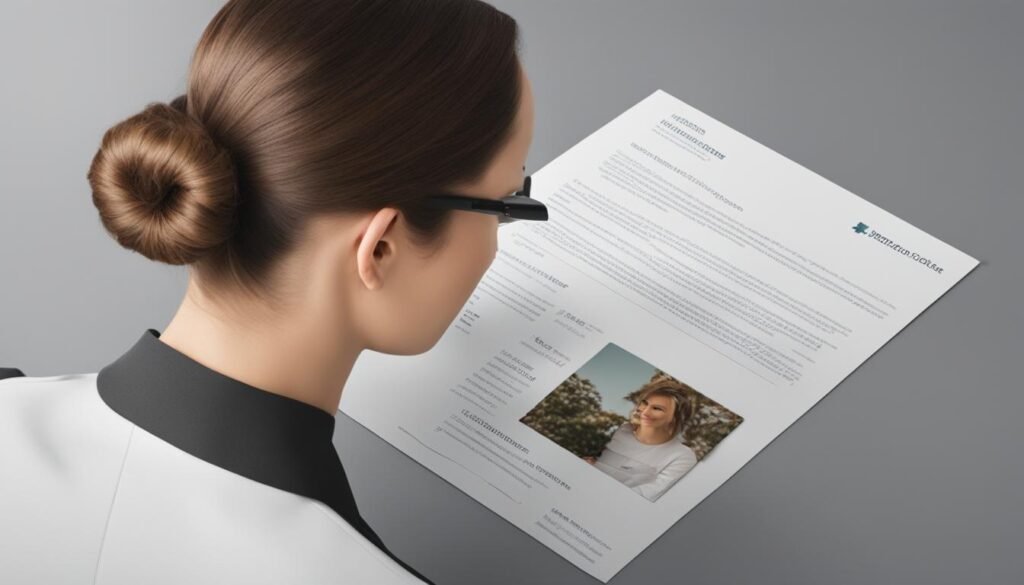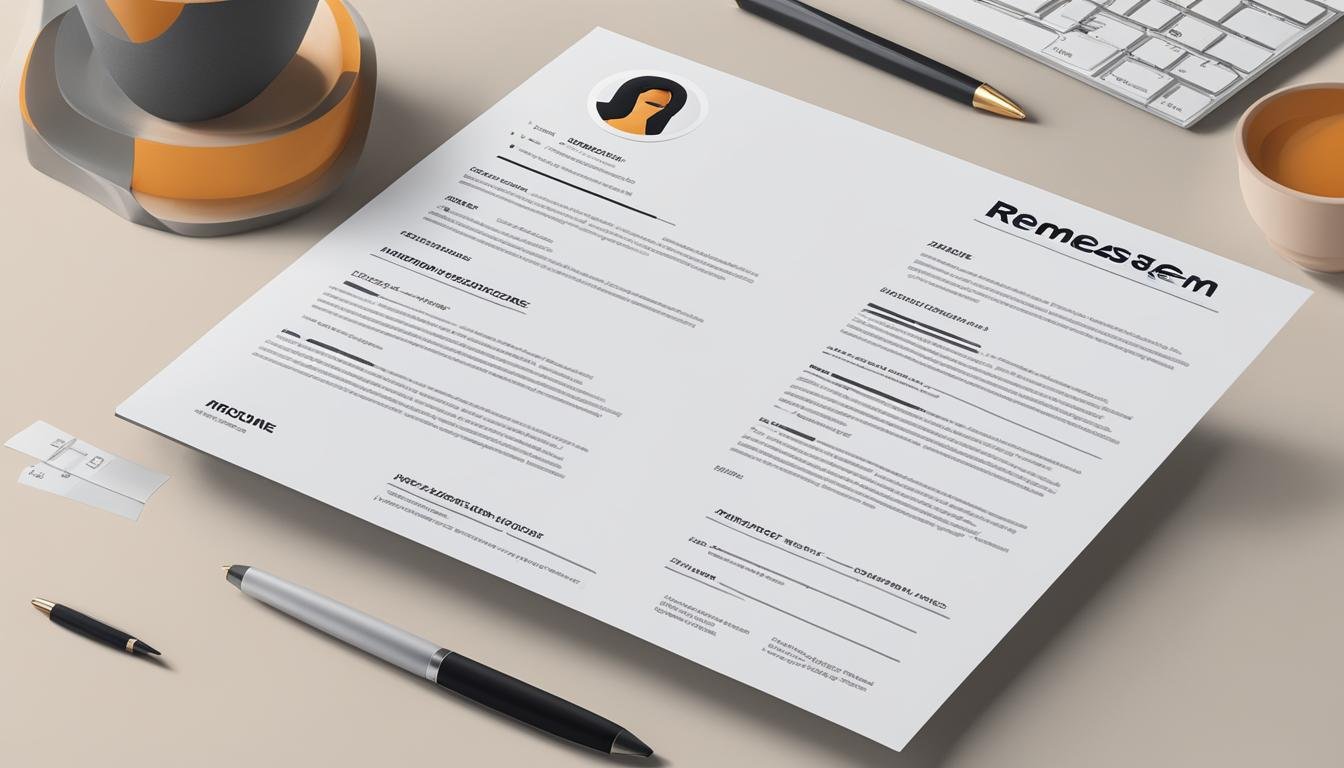Are you struggling to make a strong impression with your resume and cover letter?
Writing an effective resume and cover letter is crucial when it comes to standing out in the job application process. Whether you’re a fresh graduate or an experienced professional, these documents play a significant role in showcasing your skills, experiences, and qualifications to potential employers.
According to experts, including a cover letter can increase your chances of getting noticed by as much as 50%. This means that investing time and effort into crafting a compelling resume and cover letter can significantly enhance your prospects of landing your dream job.
So, what steps can you take to ensure that your resume and cover letter make a lasting impact?
First and foremost, research is key. Before you start writing, take the time to understand the company and the specific job you’re applying for. This will help you tailor your documents to showcase how your skills and experiences align with the organization’s needs.
One effective way to grab the hiring manager’s attention is through a strong opening line. Use this opportunity to highlight your enthusiasm for the role or make a relevant connection to the company. A personalized and engaging opening can make a lasting impression and set the tone for the rest of your application.
In addition, it’s essential to customize your cover letter to match the company and position you’re targeting. Highlight your qualifications and relevant experiences that demonstrate your capability to excel in the role. By providing specific examples, you can showcase your achievements and prove that you’re the perfect fit for the job.
Furthermore, show your genuine passion and interest in the company. Research their products, values, and brand voice. Mention specific aspects that resonate with you, and explain how your values align with theirs. By demonstrating your enthusiasm, you’ll differentiate yourself from other applicants and show that you genuinely want to be a part of their organization.
When writing your resume and cover letter, use clear and concise language that is universally understood. Avoid technical jargon and focus on effectively communicating your qualifications and experiences. Proofread your documents carefully for any errors in spelling, grammar, or punctuation. A polished and error-free application will make a positive impression on hiring managers.
Remember, one size does not fit all. Customize your cover letter for each job you apply to. Tailor your application to the specific position and organization, showcasing how you can contribute to their success. This personalized approach shows your dedication and increases your chances of getting noticed by the hiring manager.
By following these tips and investing time in crafting an effective resume and cover letter, you’ll present yourself as the ideal candidate for the job. Gear up to unlock your career potential and increase your chances of landing that dream role.
Whether you’re just starting your career or looking to take the next step, a strong resume and cover letter are your key to success.
The Importance of Cover Letters
A cover letter is an essential part of the job application process. While it may be tempting to skip it, sending a well-crafted cover letter can significantly increase your chances of getting hired.
Even if only one in two cover letters gets read, that’s still a 50% chance that including one could help you. It’s an opportunity to introduce yourself, highlight your qualifications, and demonstrate your interest in the company and the specific job you’re applying for.
Make sure to customize each cover letter to match the company and position you’re targeting. By tailoring your cover letter, you show the hiring manager that you’ve taken the time to research and understand the organization’s needs, making you a standout candidate.
- Introduce yourself and your interest in the position
- Showcase your qualifications and relevant experience
- Highlight your enthusiasm for the company
- Personalize your letter to stand out
By following these guidelines and investing time in crafting a compelling cover letter, you’ll increase your chances of grabbing the attention of employers and securing your dream job.
Craft a Compelling Opening Paragraph
The opening paragraph of your cover letter is your opportunity to make a lasting impression and capture the reader’s attention. It is crucial to go beyond a generic statement and provide something that showcases your excitement for the company and your passion for the work you do. Personalize your opening by highlighting a relevant achievement or experience that clearly demonstrates why you are the perfect fit for the position. This will make your cover letter stand out and engage the reader right from the start.

When writing the opening paragraph of your cover letter, it is important to mention the specific job you are applying for. However, instead of simply stating the position, try to incorporate a unique and captivating element. Mention something that genuinely shows your enthusiasm for the company and the role you are applying for. By doing so, you will instantly pique the reader’s interest and create a strong connection.
One effective way to craft a compelling opening paragraph is by starting with a brief anecdote or personal story related to your experience or achievements in the field. For example, you could begin by sharing the impact of a project you successfully led or how your innovative ideas made a significant difference in a previous role.
The key is to personalize your opening while aligning it with the company’s values and goals. Research the organization thoroughly and identify its core values, mission statement, and achievements. Incorporate this information into your opening paragraph to demonstrate your knowledge and genuine interest in the company. By tailoring your opening to the specific organization, you will show that you are invested in their success and that you understand how your skills and experience can contribute to their growth.
Engaging the reader from the start is essential in the competitive job market. A well-crafted, compelling opening paragraph sets the tone for the rest of your cover letter and makes a memorable impression on the hiring manager. Take the time to make it personal, relevant, and captivating to increase your chances of advancing in the job application process.
Highlight Your Qualifications
When writing your cover letter, it’s crucial to emphasize your qualifications that align with the job requirements. Take the time to carefully review the job description and identify the key skills and experiences the employer is seeking. Select three to five qualifications that you feel you exemplify best and provide examples from your past that prove you have them. Use specific details and numbers to showcase your achievements and demonstrate your capability to succeed in the role. This will show the hiring manager that you’re the perfect candidate for the position.
Highlighting your relevant experiences and qualifications will make your cover letter stand out from the competition. It’s important to remember that hiring managers are looking for candidates who can hit the ground running and contribute to the company’s success. By emphasizing your qualifications that align with the job description, you’re showing the hiring manager that you have the skills and experience necessary to excel in the role.
When describing your qualifications, be sure to provide specific examples from your past experiences. Use numbers and metrics whenever possible to quantify your achievements. For example, instead of simply stating that you have project management skills, mention that you successfully led a team of 10 people to complete a project ahead of schedule and within budget.
By showcasing your qualifications and relevant experiences, you’re demonstrating your value to the employer and increasing your chances of getting invited for an interview. Don’t be afraid to sell yourself and highlight your strengths. Remember, the cover letter is your opportunity to make a strong impression and convince the hiring manager that you’re the right fit for the job.
Show Your Passion and Interest
When it comes to the job application process, employers want to see that you have a genuine passion for their company and a strong enthusiasm for the role you’re applying for. One of the best ways to showcase your genuine interest is by researching the company and finding specific aspects that resonate with you.
For example, if you’ve been a long-time user of their products or services, mention how your personal experience has deepened your connection to the company. Alternatively, you can highlight how their brand voice and approach to product development align with your own values and aspirations.
By demonstrating your genuine enthusiasm, you’ll not only differentiate yourself from other applicants but also show the hiring manager that you’re the right fit for their company culture. Employers appreciate candidates who share their values and are genuinely excited about the work they do. This level of passion and interest will make your application stand out and increase your chances of getting noticed.
Use Clear and Concise Language
A well-written resume and cover letter are essential components of a successful job application. When crafting these documents, it is important to use clear and concise language that can be understood by all readers. Avoid using jargon or technical terms that may not be familiar to the hiring manager. Keep your sentences and paragraphs simple and straightforward to effectively convey your qualifications and experiences. Additionally, make sure to proofread your documents for spelling, grammar, and punctuation errors to ensure they are polished and error-free. This attention to detail will make a positive impression on hiring managers and increase your chances of securing the job.
Customize Your Cover Letter for Each Job
When it comes to writing a cover letter, it can be tempting to use a generic template and send the same letter for every job you apply to. However, taking the time to customize your cover letter for each job is crucial in making a strong impression on hiring managers.
Employers want to see that you are genuinely interested in their specific position and organization. By tailoring your cover letter to each job, you demonstrate that you have done your research and understand their needs and values.
Start by thoroughly researching the company and the job requirements. Look for information on their website, read their mission statement, and browse their social media profiles. This will give you valuable insights into their culture and help you understand what they are looking for in a candidate.
Once you have a clear understanding of the company and the job, highlight how your skills, experiences, and qualifications align with the requirements. Make sure to address the key points mentioned in the job description and provide specific examples of how you have successfully demonstrated those skills in the past.
Customizing your cover letter shows your dedication and attention to detail, indicating that you are genuinely interested in the position. It helps you stand out from other applicants who may be sending generic cover letters. By showcasing your understanding of the company and your ability to meet their needs, you increase your chances of getting noticed by the hiring manager.
Remember, a personalized cover letter is your chance to make a compelling case for why you are the perfect fit for the job. Take the time to craft a custom cover letter for each application, and you’ll greatly enhance your chances of landing your dream job.

Conclusion
Writing an effective resume and cover letter is crucial in today’s highly competitive job market. By implementing the tips mentioned in this article and customizing your application for each job, you can significantly increase your chances of standing out to hiring managers.
Highlighting your qualifications and experiences that align with the job requirements is essential. Employers want to see your genuine passion for their company and the role you’re applying for. By demonstrating your interest and enthusiasm, you can differentiate yourself from other applicants.
Furthermore, using clear and concise language in your application materials is key. Avoid jargon and technical terms, and proofread your documents for any errors. A polished and error-free resume and cover letter will make a positive impression on hiring managers.
Investing time and effort into crafting a well-crafted resume and cover letter will unlock your career potential. Present yourself as the ideal candidate by showcasing your qualifications, showcasing your passion for the company, and using language that effectively communicates your strengths. With a strong application, you’ll be on your way to securing the job of your dreams.
Source Links
- https://hbr.org/2014/02/how-to-write-a-cover-letter
- https://www.pcmag.com/news/11-tips-for-better-resumes-and-cover-letters
- https://www.themuse.com/advice/how-to-write-a-cover-letter-31-tips-you-need-to-know


